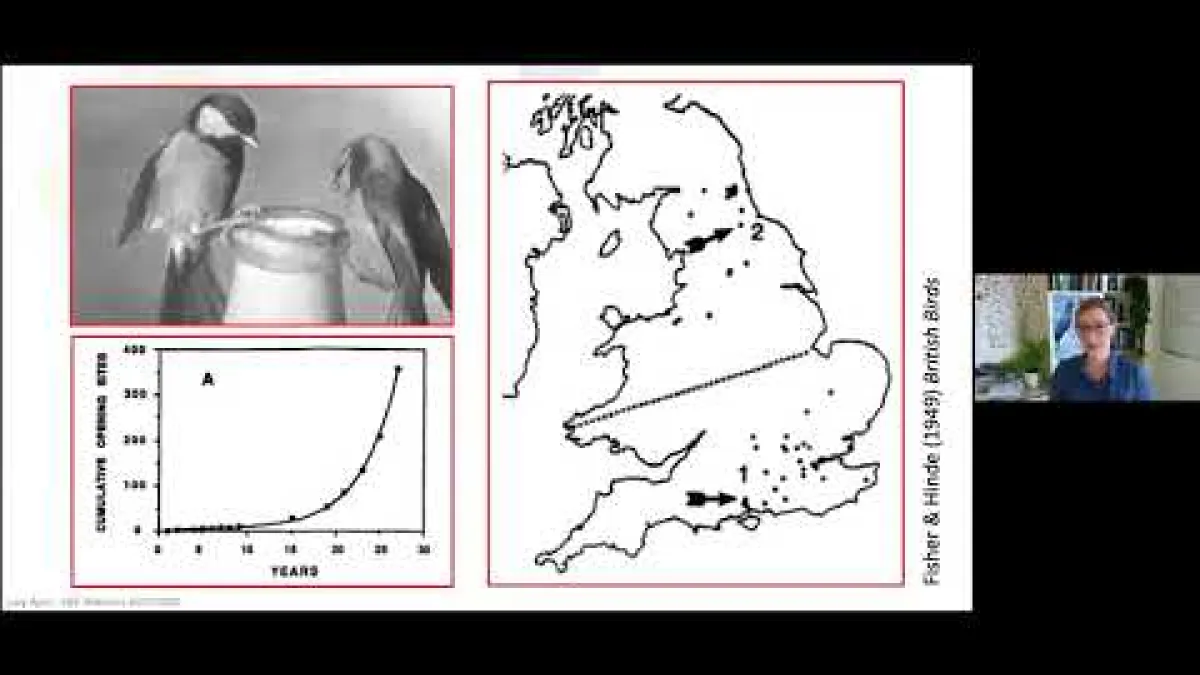E&E Webinar: How social and environmental dynamics shape animal culture
There is an increasing body of evidence for the existence of animal cultures. Recent work has also suggested cultural traits can be subject to selection, changing in form, function or distribution.
Speakers
Event series
Content navigation
Description

Biography
Lucy is a cognitive ecologist, studying how animals acquire, process and use information to adapt to their environment. She did her Ph.D. at the Australian National University and co-supervised at ANU and the University of Oxford, and then remained at Oxford first as a postdoc and then as a Junior Research Fellow at St John’s College. Since 2018, Lucy has held a Max Planck Group Leader Fellowship at the Max Planck Institute of Animal Behaviour, where she heads the Cognitive & Cultural Ecology Research Group. Her research group focuses on the interplay between social networks, cognition and culture in parids and parrots.
Location
Please click the link to join the webinar:
https://anu.zoom.us/j/94390000606


